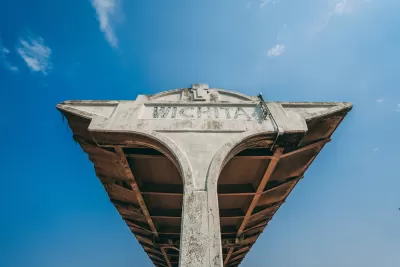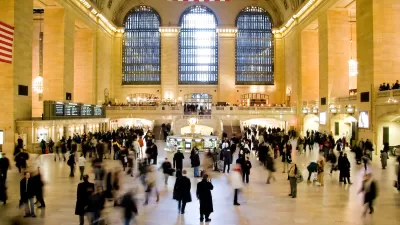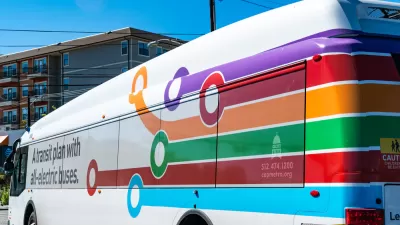A four-part series explores the shortcomings of transit politics and planning in Wichita, Kansas.

"Wichita is far behind peer cities in the provision and use of public transit," reports Chase M. Billingham.
The sluggish pace of Wichita's transit funding isn't due to car culture, which is also present in other similarly sized cities, notes Billingham. "The true source of divergence is funding. Wichita Transit is severely underfunded, even compared to its peers in nearby car-friendly cities such as Omaha, Oklahoma City and Tulsa."
Data from the U.S. Department of Transportation shows Wichita Transit receiving approximately $4.2 million in local funds in 2017. "By comparison, local agencies that year received $7.4 million in Tulsa, $14.1 million in Oklahoma City, $14.5 million in Omaha, $15.4 million in Des Moines and $70.4 million in Kansas City," according to Billingham.
Local leaders are looking for new sources of revenue to fund transit projects, but a frequently floated idea of implementing a dedicated local sales tax has never been made a reality.
"Transit was one of four priorities that the city identified when it held a referendum on imposing a new 1-cent sales tax in 2014. Amid well-funded opposition and much controversy, that referendum was decisively rejected by voters."
The article is the third in a four-part series of guest commentaries on the subject of transit funding and planning in the city of Wichita.
FULL STORY: Wichita spends far less on public transportation than its peers — that has to change

Maui's Vacation Rental Debate Turns Ugly
Verbal attacks, misinformation campaigns and fistfights plague a high-stakes debate to convert thousands of vacation rentals into long-term housing.

Planetizen Federal Action Tracker
A weekly monitor of how Trump’s orders and actions are impacting planners and planning in America.

Chicago’s Ghost Rails
Just beneath the surface of the modern city lie the remnants of its expansive early 20th-century streetcar system.

Bend, Oregon Zoning Reforms Prioritize Small-Scale Housing
The city altered its zoning code to allow multi-family housing and eliminated parking mandates citywide.

Amtrak Cutting Jobs, Funding to High-Speed Rail
The agency plans to cut 10 percent of its workforce and has confirmed it will not fund new high-speed rail projects.

LA Denies Basic Services to Unhoused Residents
The city has repeatedly failed to respond to requests for trash pickup at encampment sites, and eliminated a program that provided mobile showers and toilets.
Urban Design for Planners 1: Software Tools
This six-course series explores essential urban design concepts using open source software and equips planners with the tools they need to participate fully in the urban design process.
Planning for Universal Design
Learn the tools for implementing Universal Design in planning regulations.
planning NEXT
Appalachian Highlands Housing Partners
Mpact (founded as Rail~Volution)
City of Camden Redevelopment Agency
City of Astoria
City of Portland
City of Laramie





























